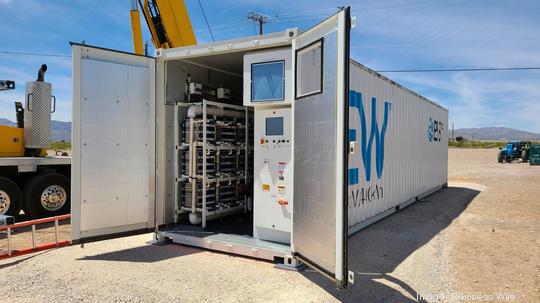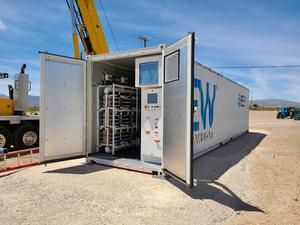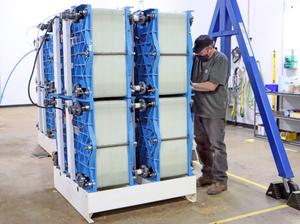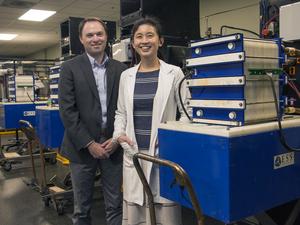
ESS recognized revenue on a key product for the first time in the second quarter, a "significant milestone" for the Wilsonville-based long-duration energy storage company, CEO Eric Dresselhuys said.
ESS also announced a partnership with an Australian company that will do final assembly of ESS systems using core components manufactured in Wilsonville.
Ahead of that, ESS said it expects to supply 70 complete Energy Warehouse systems to Queensland-based Energy Storage Industries Asia Pacific (ESI) by the end of 2023.
The revenue ESS notched from the sale of Energy Warehouses in the quarter was modest, $686,000, hardly denting the nearly $25 million it spent in Q2. But it signaled the successful deployment and acceptance by customers of three of the units.
Three months ago, ESS (NYSE: GWH) had cited “unanticipated challenges” to recognizing revenue for units it had shipped.
On Thursday, Dresselhuys said the company "learned a great deal about installation and deployment" through the experience that would aid it as it rolls out more units. CFO Amir Moftakhar added, "We do feel it's going to go more smoothly" moving ahead.
That's on the deployment side. On the production side, Dresselhuys said issues with suppliers have "already slowed our production schedule." The company "still sees a path" to previous guidance of 40-50 units delivered this year, but Dresselhuys gave a little wiggle room, adding that the number will likely be at the low end of that range, possibly slightly below.
Further out, ESS could get a boost from the Inflation Reduction Act that appears to be nearing passage in Congress. Storage systems previously had to be paired directly with a renewable energy project to be eligible for a 30% tax credit; the bill makes standalone storage eligible. Also, the bill provides another 10% for domestically manufactured systems.
"This would leave us extremely well positioned to be a vendor of choice," Dresselhuys said.
ESS makes a unique iron-based flow battery that it bills as a better alternative to lithium-ion batteries for long-duration energy storage — generally 6-10 hours — that is increasingly in need as climate change drives a transition to intermittent renewable resources.
The company builds the systems in Wilsonville, where it continues to spend heavily to automate production lines. It started up a second semi-automated line in the second quarter, doubling production capacity to 500 megawatt-hours of storage systems, and expects to be at 750 MWh by the end of the year.
That scaling and automating are key to reducing the cost of ESS products, Dresselhuys said.
"The biggest cost reductions we've had for this year, and this was always the plan, is on the labor side, and we're making great progress against that," he said. "And the good news is, it's not only more efficient, but we build faster with less labor. So it helps increase our velocity."
The company reported $192 million on hand as of Q2's end and company officials said they expect to finish the year with at least $120 million.
The earnings report, released after market close on Thursday, appeared to give ESS' stock a lift: It rose in after-hours trading and continued to climb Friday morning, up about 18% over Thursday's close at $4.94 as of 8:15 a.m. PDT.






